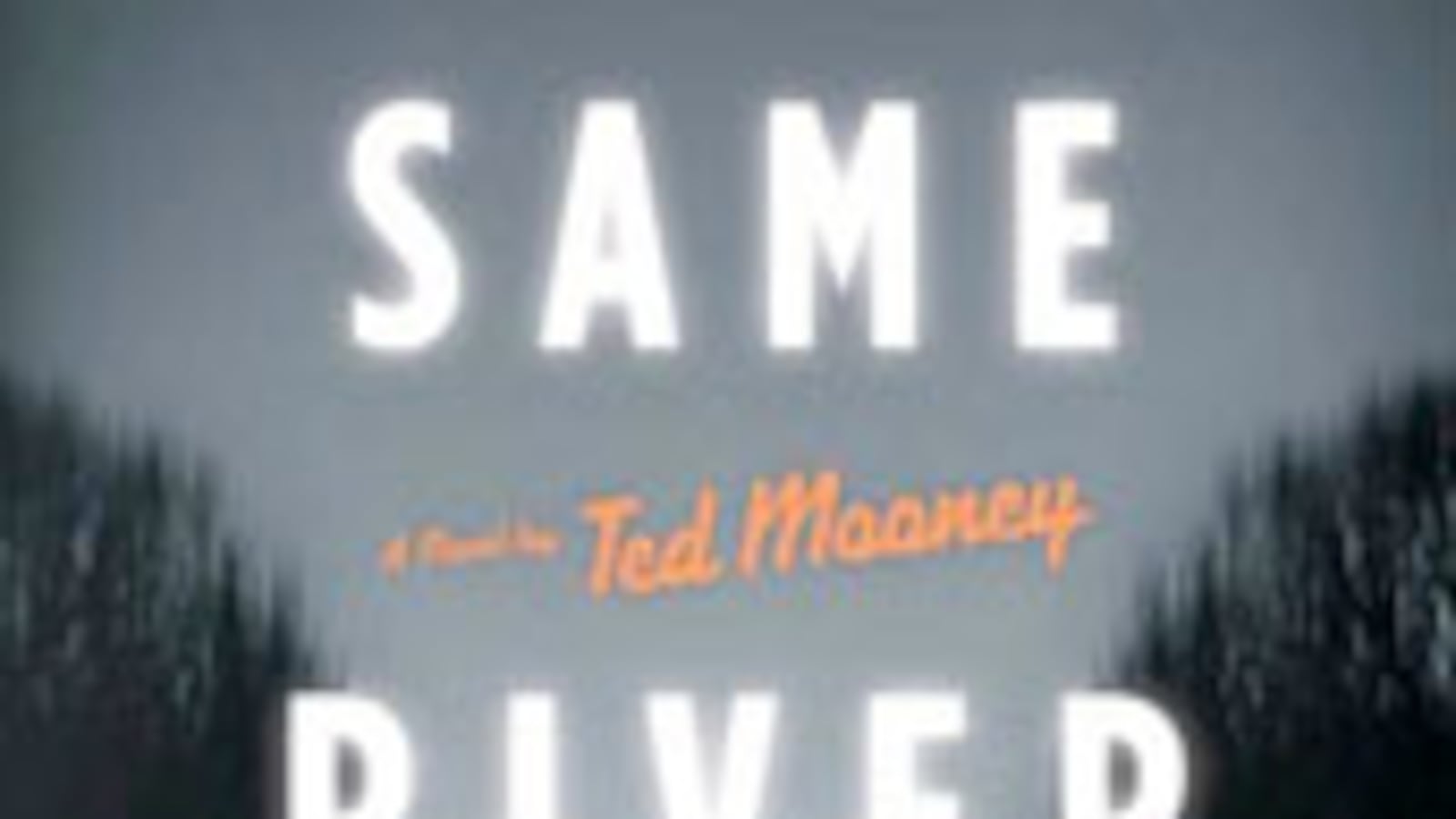
The literary-agent scandal making news right now is William Morris-Endeavor agent Bill Clegg’s past as a crackhead. But as novelist Ted Mooney published his new book, The Same River Twice, with Knopf last month, old rumors bubbled up about another agent, Harriet Wasserman, who once represented Mooney. The Same River Twice, an intellectual thriller of art, crime, and love, has received glowing reviews—Danielle Trussoni in the New York Times was “mesmerized by [the] storyteller’s gifts”; the Boston Globe called it “riveting” and “dazzling.” And it was hardly hyperbole when Sam Tanenhaus, the editor of The New York Times Book Review, recently said, “Ted Mooney has had one of the most interesting and ambitious literary careers of the modern period.” Considering he arrived without any representation at Knopf with its formidable Editor-at-Large Gary Fisketjon, it seems even more extraordinary—it's unusual for an established writer to publish at a major house without the aid and connections of an agent. But he had his reasons for going it alone, Wasserman being first and foremost, and the story is its own parable of art, crime, and love.
“I think she just got desperate. She mixed up her accounts, spent too much money, and wasn’t able to come up with it when she needed to pay us.”
Mooney has been on bookshelves for decades: his 1981 novel, Easy Travel to Other Planets, published to great acclaim, launched him up there with other popular writers of the era—Lorrie Moore, Jay McInerney, Ann Beattie, and Tama Janowitz. But as his career progressed through the 1990s with Traffic and Laughter (1990) and Singing Into the Piano (1998), his potential seemed under-realized. Those next two books were certainly not disasters—they were good—but they met some tough critics, and though they sold well enough, they never made Mooney a household name. At the time, Wasserman represented Mooney and a glittery list of other writers, including Oscar Hijuelos, Richard Bausch, Alice McDermott, Reynolds Price, and Suzan-Lori Parks. Most infamously, Wasserman also represented Saul Bellow, whom she was madly in love with, as she wrote in her tragically confessional 1997 memoir, Handsome Is (the title refers to Bellow). Bellow had other plans with other agents; he left Wasserman for Andrew Wylie in 1993. That, thinks Mooney, is when Wasserman began a long decline, one that her other clients would not realize until it was too late.
“When Saul, whom she just adored, left her for Wylie, she thought, f--- it,” says Mooney, trying to make heads or tails of what happened next. Several people contacted for this article gave the same story: over the coming years, Wasserman’s clients, in increasing numbers, began to question her stability, and the attention being paid to their works being pushed out into the world. Aggressive representation and vigorous attention, it seems, were exactly what Mooney had needed those other times.
Some of the writers began to notice that royalties were not being passed from the agency to them, though the various publishers had been cutting the proper checks, and someone had been cashing them. One of the writers who would talk was Bausch, the prolific novelist whose works include The Last Good Time (1982), Rare & Endangered Species (1994), and Thanksgiving Night (2006). Along with two of Wasserman’s former clients, Bausch sued her for $10,000 from two missing royalty payments. Others fared worse. The New York Post reported the lawsuit when it was filed in Manhattan Supreme Court three years ago this month; two children’s book writers, Walter Dean Myers and Emily Arnold McCully, alleged they were out a collective $120,000-plus. Not a Madoffian sum, but in the literary community, where most writers feel comically poor compared to bankers, it’s a huge chunk.
Bausch had left Wasserman in 2005 for literary agent Henry Dunow, after payments from publisher W.W. Norton & Company never made it to Bausch, even though the checks had been cashed by the Wasserman agency. When Bausch confronted Wasserman about the missing payments, she backpedaled with unbelievable excuses—“the dog ate my homework,” Bausch joked to The Daily Beast (he used the same analogy with the Post in 2007). “I think she just got desperate. She mixed up her accounts, spent too much money, and wasn’t able to come up with it when she needed to pay us,” posits Bausch, from Tennessee, where he’s now the Moss Chair of Excellence at the University of Memphis. He reported her to the Association of Author’s Representatives, and later filed suit with McCully and Myers. The result remains in limbo: lawyers for both sides reached a private agreement under which the suit is frozen until Wasserman is able to pay, at which point the three authors will be first in line to get their money back, so to speak. Despite the fallout, Bausch maintains a certain generosity about Wasserman’s erstwhile integrity. “Here’s the thing about Harriet: when she was at the top, she was the best. When I had to let her go, it was really hard, because it was a friendship.”
Mooney presents his own theory in a writer’s penetrating logic and lovely wording: “She'd been Saul Bellow's agent for decades, they used to talk at length on the phone every afternoon, and I'm certain that (besides just out-and-out adoring him) Harriet counted on his backlist to be her retirement fund. When Andrew Wylie persuaded Saul to let him handle the backlist, Harriet first wrote Handsome Is, a peculiar book about the one time she slept with Saul (an event distasteful to imagine at best), then must have concluded that all faith had now been broken, human beings were worthless liars, and that she thereafter would consider everything permissible.”
Wasserman seems to have simply disappeared after breaking up the agency in the fall of 2007. Attempts to find her or confirm her whereabouts turned up sand. The bad stuff is over for now, though, and Mooney’s new book continues to enjoy success, a few weeks ago having been feted at a party hosted by Susan and David Rockefeller at their home.
“If this book was anything less than what it is, it would be tough in this market [to publish without an agent]. But it’s an extremely good book. It’s extraordinary, very distinctive, and something only Ted could have written. I can’t imagine anyone reading this book without someone desperately wanting to represent him,” says Fisketjon. For Mooney, though, the feeling may not be mutual. He has decided that, “After two years of fruitless looking, I decided to represent The Same River Twice myself, which turns out to have been an excellent decision.”
Plus: Check out Book Beast for more news on hot titles and authors and excerpts from the latest books.
Claire Howorth is the Arts editor at the Daily Beast.






